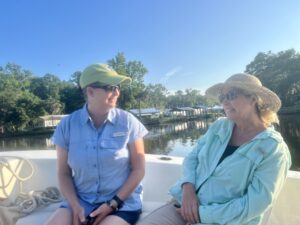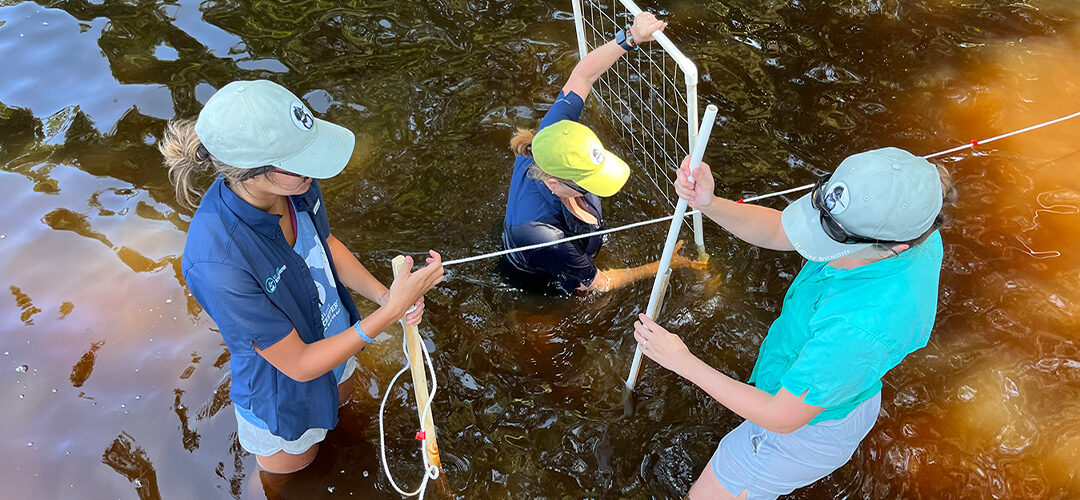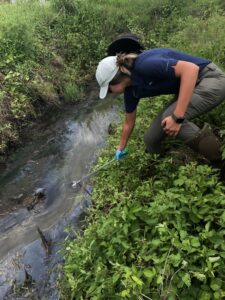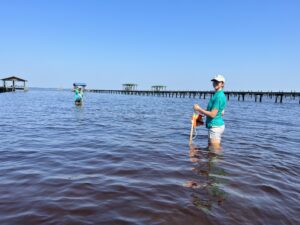St. Johns RIVERKEEPER’s mission is to defend the St. Johns River and advocate for its protection. We want to give you a brief update on some of the threats to our river that we have been working to improve.
Bad Bills
The “Radioactive Roads Bill,” HB 1191/SB 1258 was unfortunately signed into law on 6/29/23. View the call to action we previously shared for more information. This bill will allow the use of cancer-causing toxins, currently banned by the EPA, in Florida road construction. When it rains, those chemicals seep into our water and air. This will harm our environment and ALL Floridians’ health.
Senate Bill 170 / House Bill 1515 – “Local Ordinances” was also signed by the Governor on 6/29/23. Read the action alert to lean more. Bottom Line: Senate Bill 170 / House Bill 1515 will make it much harder for local governments to solve local issues, including measures to protect the local environment and quality of life.
Unfortunately, the “Bad Growth Bill” (HB 359/SB 540) was approved by the Governor on May 24. This bill basically kills the ability for citizens to challenge bad development decisions. Read more about this bill on our previous blog.
Biosolids/Sewage/Nutrients
Biosolids: One Baby Step Forward, Two Steps Back
The St. Johns River continues to be South Florida’s dumping ground for concentrated human sewage that is commingled with industrial waste, also known as biosolids or sewage sludge. As a result, water quality is being degraded at an alarming rate. SJRK Headwaters Advisory Group has led that charge since 2018, when we were alerted to this outrageous practice. Our efforts led to slightly better regulations approved by the Florida Legislature in 2021, but South Florida continues to truck 50,000+ tons of sewage sludge to our Upper St. Johns River annually.
In the 2023 Legislative Session, a watered-down version of SB 880 was passed thanks to the efforts of the Public Trust for Conservation. While a biosolids grant program was created that could incentivize utilities to clean up their sewage sludge on site, it was not funded and the much-needed protections for all waters outside of South Florida were not granted. Florida simply does not have a sustainable method of treating the state’s growing volume of sewage. We continue to document the degradation of the St. Johns resulting from this practice and work with our partners to convince legislators to protect all of Florida waters equally.
Pollution Solution: Team Investigates Issue Reported by Local Citizens
Our advocacy team was out in the field this month multiple times in the Tocoi community in St. Johns County testing for fecal coliform matter in a ditch along State Road 13 that drains directly into the St. Johns River. We tested water samples from different parts of the contaminated area to pinpoint the source of the pollution. The water samples we took had extremely high levels of fecal coliform. We returned for another sample to test for E. coli to see if the waste is human or animal. We have reported our findings and are following up with the state agencies involved to ensure this issue is resolved and the polluters are held accountable.
Local Government Fertilizer Preemption Approved
At the end of the Legislative Session, a last-minute maneuver to undermine water quality protections against fertilizer was amended into the appropriations bill without legislative or public vetting. The provision preempts local governments from adopting new bans or changing existing bans on fertilizer applications even in environmentally sensitive areas. Thank you to everyone who asked Governor DeSantis to Veto this bad policy. Unfortunately, this measure was approved as part of the budget and will make our river more susceptible to blue-green algae outbreaks.

Lisa Rinaman and Jessica Finch on St. Johns RIVERKEEPER’s boat, the Kingfisher, in Putnam County
Reunite the Rivers
Our advocacy team is continuing to meet with more river enthusiasts throughout Putnam county this summer and planning more opportunities for all to experience the potential of the Great Florida Riverway. We will be offering more boat tours and hikes from Silver Springs to the Ocklawaha and St. Johns Rivers. If you have a group that is interested in planning an outing, let us know!
We are also meeting with elected officials and community leaders to ensure we create and amplify river access for more locals in Putnam County. As we explore the benefits of a restored Great Florida Riverway, we can expand opportunities for recreational economic benefit for Putnam County, helping more people discover the wonders of our watershed.
Algae Blooms
As we head into a holiday weekend, conditions are ripe for potential algae outbreaks. Existing nutrient pollution, warming waters and runoff from frequent rainstorms during the summer could result in blue-green algae coating our river and its tributaries.
Check out our recent blog post to learn more about algae blooms, how to identify and report them, and what YOU can do to be a part of the solution to the nutrient problem in our river.
If you see green coating the water or in your wake, that is a sign of an algae outbreak. Here’s what to do if you see one:
- Avoid boating, swimming, or fishing in this area.
- If you or your pet come in contact with a bloom, wash off immediately and thoroughly with clean water and soap.
- Take photos of the algae you see, and note the exact location as best you can.
- Report blooms to the Florida Department of Environmental Protection at floridadep.gov/AlgalBloom or call toll free at 1-855-305-3903.
- Email report@sjrk.org with photos, time, date and location, so we can follow up with DEP and perform testing, when appropriate.
SAVe The Grasses
Our advocacy team is continuing to collect state and federal agency data to include in the soon-to-be-released report on the Spring 2023 SAVe the Grasses Expedition. The full report will be released in mid-July.
The team was out in the field again today collecting additional data to include in the report.
Resilience/Hurricane Season
Hurricane season is upon us. As we experience more frequent storms, we must do our best to prepare our homes to protect our families – and our river. One simple river-friendly tip everyone can take into account: secure any chemicals, fertilizers or pesticides in your garage or shed in an elevated position that is not subject to flooding, so they cannot leak into our storm drains and waterways. You can also make sure storm drains around your home are clear of debris.
Check out this Emergency Supply Kit checklist form the City of Jacksonville.
Check out this Make a Plan emergency checklist from Seminole County.
Check out this flood preparedness document from Volusia County.


